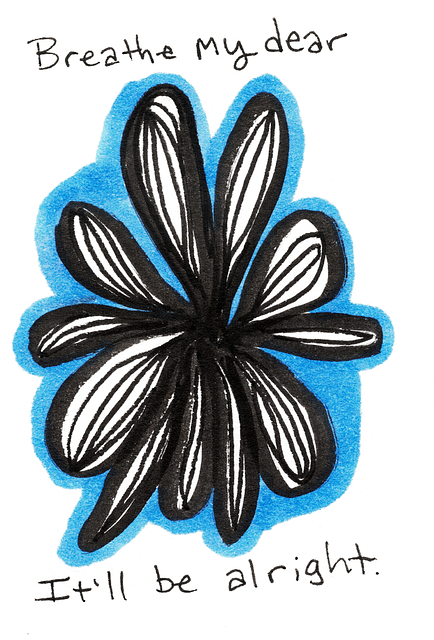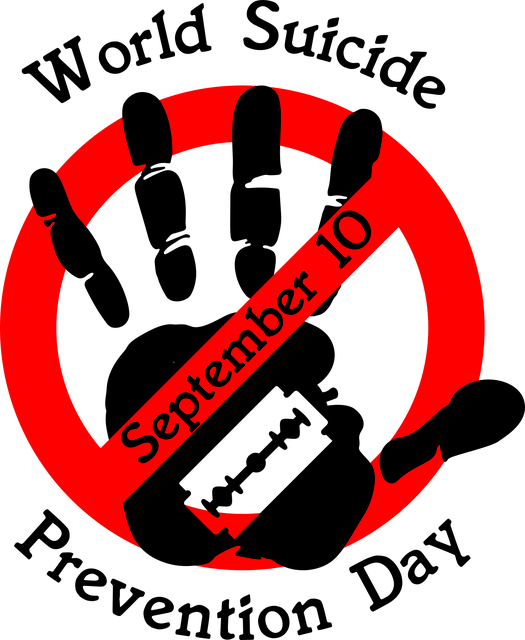Wheat Ridge Sexual Addiction Therapy offers crisis intervention strategies focusing on stabilization, assessment, and resource connection for acute distress and trauma, preventing long-term negative outcomes. Their holistic approach integrates evidence-based practices like CBT, self-care routines, and mental wellness coaching, fostering community through a podcast series and Mental Wellness Journaling Exercises. Skilled providers identify red flags, assess risk factors, and employ empathy building strategies to address immediate crises and underlying issues. Post-intervention support includes tailored aftercare plans, referrals, and burnout prevention strategies for both clients and healthcare providers, ensuring sustained recovery and resilience.
In times of crisis, effective intervention strategies can make all the difference. This comprehensive guide explores key aspects of crisis intervention, from recognizing red flags and assessing risk factors to implementing evidence-based techniques. We delve into post-intervention support and ongoing recovery management, offering valuable insights for professionals like those at Wheat Ridge Sexual Addiction Therapy. By understanding these strategies, we can better navigate crises and foster healthier outcomes.
- Understanding Crisis Intervention: A Brief Overview
- Identifying Red Flags and Assessing Risk Factors
- Evidence-Based Strategies for Effective Intervention
- Post-Intervention Support and Ongoing Recovery Management
Understanding Crisis Intervention: A Brief Overview

Crisis intervention strategies are vital tools designed to provide immediate support and guidance during moments of intense distress or traumatic events. This approach recognizes that swift and effective assistance can make a significant difference in mitigating long-term negative outcomes for individuals, families, and communities. At Wheat Ridge Sexual Addiction Therapy, we understand the critical need for crisis intervention, especially in addressing complex issues such as sexual addiction, which often co-occurs with mental health disorders and can lead to severe burnout if left unaddressed.
The process involves a structured yet flexible framework tailored to the unique needs of each situation. It focuses on stabilization, assessment, and connecting individuals with appropriate resources for ongoing recovery and resilience-building. By integrating evidence-based practices and incorporating elements from Mental Wellness Coaching Programs Development and Burnout Prevention Strategies for Healthcare Providers, our therapists facilitate a holistic approach to crisis intervention. This method not only helps in managing acute situations but also equips individuals with coping mechanisms and enhances their overall mental wellness. Additionally, the development of Mental Wellness Podcast Series Production can further extend support by providing accessible resources and sharing recovery stories, fostering a sense of community and hope among those facing crises.
Identifying Red Flags and Assessing Risk Factors

Identifying red flags and assessing risk factors are critical steps in crisis intervention. Red flags can manifest as observable behaviors or subtle cues that indicate an individual is experiencing distress, such as severe mood swings, isolation from friends and family, or sudden changes in routine. These signs often point to underlying issues requiring immediate attention. Healthcare providers skilled in Wheat Ridge Sexual Addiction Therapy understand the importance of recognizing these flags, which may include substance abuse, self-harm, or impulsive behaviors.
Assessing risk factors involves a comprehensive look at an individual’s circumstances and personal history. This includes evaluating mental health diagnoses, past trauma, access to support systems, and any recent life changes. By integrating Empathy Building Strategies and Emotional Well-being Promotion Techniques, therapists can create a safe space for clients to open up about their struggles. This holistic approach ensures that interventions are tailored to address both the immediate crisis and underlying contributing factors.
Evidence-Based Strategies for Effective Intervention

In the realm of crisis intervention, evidence-based strategies hold the key to effective support and recovery. These approaches, like those offered at Wheat Ridge Sexual Addiction Therapy, are designed to address immediate crises while fostering long-term resilience. One such strategy is cognitive-behavioral therapy (CBT), which helps individuals identify and challenge negative thought patterns contributing to distress. By promoting healthier thinking and coping mechanisms, CBT enables people to manage crises more effectively.
Additionally, self-care routine development for better mental health is a crucial component of crisis intervention. Encouraging the adoption of healthy habits such as regular exercise, adequate sleep, and stress management techniques empowers individuals to prevent burnout. Public awareness campaigns development also plays a significant role in reaching a broader audience and normalizing conversations around mental health crises. These initiatives can help reduce stigma and promote early intervention, ultimately contributing to better outcomes for those facing crisis situations.
Post-Intervention Support and Ongoing Recovery Management

Post-intervention support is a critical phase in crisis intervention, ensuring individuals continue their journey towards recovery. At Wheat Ridge Sexual Addiction Therapy, we emphasize the importance of tailored aftercare plans, addressing unique challenges faced by each client. This may include referrals to support groups or individual therapy sessions to reinforce coping mechanisms learned during the acute intervention. Encouraging clients to maintain a Mental Wellness Journaling Exercise Guidance can be powerful; documenting thoughts and emotions facilitates self-awareness and reflection.
On-going recovery management involves ongoing engagement with clients, providing guidance and strategies for burnout prevention, particularly relevant for healthcare providers who often experience high-stress situations. We offer Burnout Prevention Strategies for Healthcare Providers as part of our comprehensive approach, focusing on resilience building to help professionals sustain their own mental wellness while supporting others.
Crisis intervention plays a pivotal role in supporting individuals facing severe challenges. By understanding the intricacies of crisis intervention, identifying red flags, and employing evidence-based strategies, professionals like those at Wheat Ridge Sexual Addiction Therapy can provide effective support. Post-intervention care and ongoing recovery management are essential for fostering resilience and promoting long-term healing. This comprehensive approach ensures that individuals in crisis receive the necessary guidance and resources to navigate their journey towards stability and recovery.










